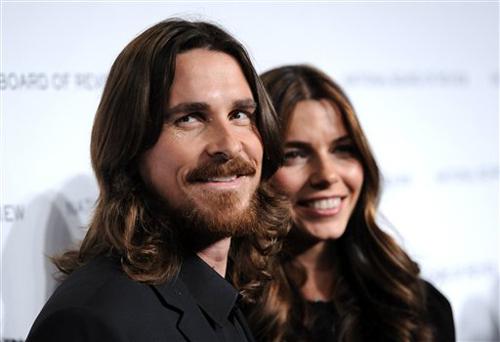In general, actors seek roles in which they can fully embrace a persona: truly becoming that person. Many such opportunities in Hollywood films do not come in the form of leading roles (as audiences might not relate to them), so they are relegated to less central roles in less traditional films.
Because of this simplification, when it comes around to end-of-the-year accolades, the Best Supporting categories prove to be the more exciting races. For example, the winners of the last three years of the Academy Awards Best Supporting Actor have been Javier Bardem in “No Country for Old Men,” Heath Ledger in “The Dark Knight” and Christoph Waltz in “Inglorious Basterds.” Needless to say, all three men completely embodied their roles as unsympathetic but wholly realized human beings. This year, as awards season approaches, the category of Best Supporting Actress will be nebulous with five strong nominees as opposed to that of Best Supporting Actor, in which there are only two real contenders: Christian Bale in “The Fighter” and Geoffrey Rush in “The King’s Speech.”
While both films couldn’t be more different superficially, they both share some striking similarities in Bale’s and Rush’s supporting roles. “The Fighter” follows aspiring boxer Mickey Ward (Mark Wahlberg) who must decide if his crack-addicted brother, former boxer Dicky Ecklund (Bale), is an obstacle to his goals. In “The King’s Speech,” speech-impediment-hindered King George VI (Colin Firth) must prove himself worthy of the throne by correcting his stutter with the assistance of unconventional speech therapist Lionel Logue (Rush).
The two films are based on true stories and present men overcoming great impediments to better themselves and those around them. Yet the characters of Dicky and Lionel differ in their approaches and how they grow over the course of the films. That being said, Bale gives a startling performance as Dicky. Bale, a fully committed method actor, is able to truly become Dicky first by transforming himself physically, to the almost unrecognizable gaunt and emaciated man the audience sees on screen, and then by giving a tragically heartbreaking presentation in which the conflict between the love for his brother and his own selfish needs rage within him.
The classically trained Rush, on the other hand, infuses the more traditional role of Lionel with such determination and humor that his performance breaks free of the clichés of the script. Rush’s talent is astounding in his capacity to understand Lionel’s convictions and also acknowledge his faults.
In the end, only one man can take home the prize, and most likely, the various award ceremonies will evenly split them between Bale and Rush. Ultimately, though Rush exhibits the courage and humility to play a character that accepts that his dreams of personal greatness are limited, Bale’s feat wins by mere inches as he comprehends the responsibility necessary for the role of Dicky and overall transformation required.
Winner: Christian Bale in “The Fighter.”
Ari Silber is a Loyola MBA student.Before graduate school, he worked for nine years in the Los Angeles film industry, focusing on marketing, publicity and distribution. He can be reached at arsilber@loyno.edu
The smart, contemporary adaptation of “The Scarlett Letter,” “Easy A,” is easily one of the funniest movies recently released on DVD, and provides Golden Globe nominee Emma Stone with her breakout role. Stone’s oddly brilliant combination of acerbic wit and compassion provide the film with a depth it would be lacking without her embracing the role of a high school student pretending to be promiscuous in order to gain attention and help those in need. The DVD has some funny bonus features including commentary with Stone and her audition footage. A-
Schlockmeister General Paul W.S. Anderson returns to writing/directing duties in the fourth (and unfortunately, not the last) in the “Resident Evil” series with “Resident Evil: Afterlife.” The best thing that can be said about this dead zombie entry (no pun intended) is that it isn’t as bad as the last, and that the 3-D Blu-ray is striking. Unfortunately, its brilliant visuals can’t make up for lack of plot and/or scare factor. D
The shortened penultimate “Big Love: The Complete Fourth Season,” arrives on DVD with revealing “Inside the Episode” perspectives from series creators Mark V. Olsen and Will Scheffer. Unfortunately, this season tries to cram in too much information in fewer episodes than previous seasons and this obvious struggle to do so proves less effective. It sets up a nail-biting cliffhanger for the upcoming final season. C+






